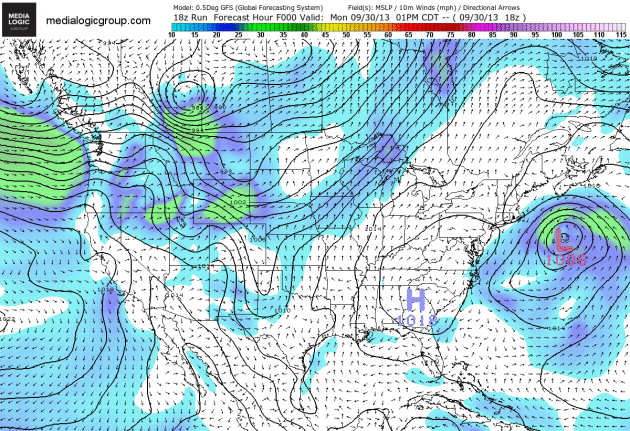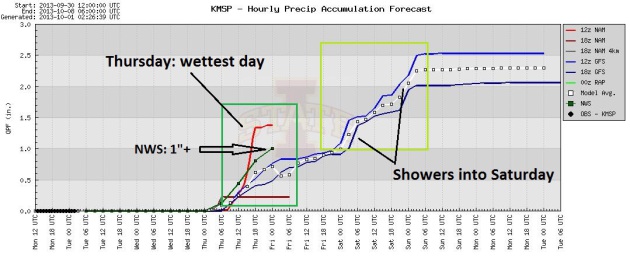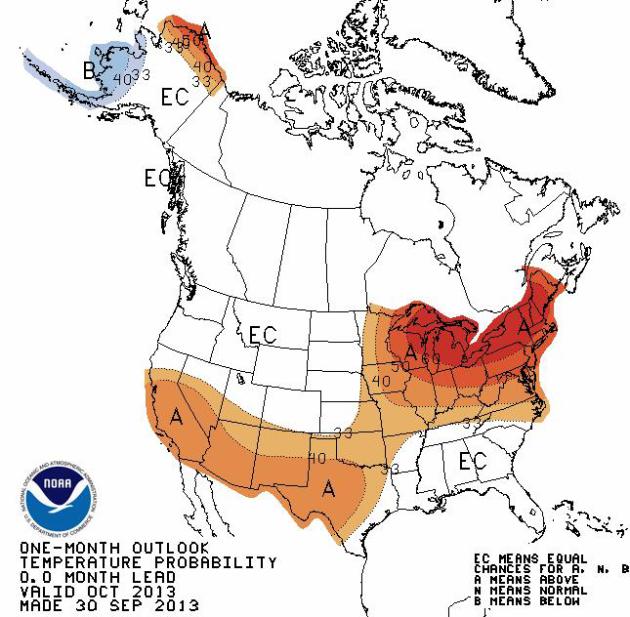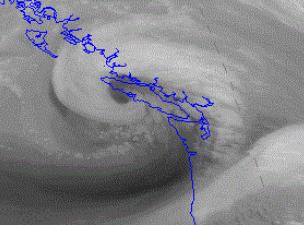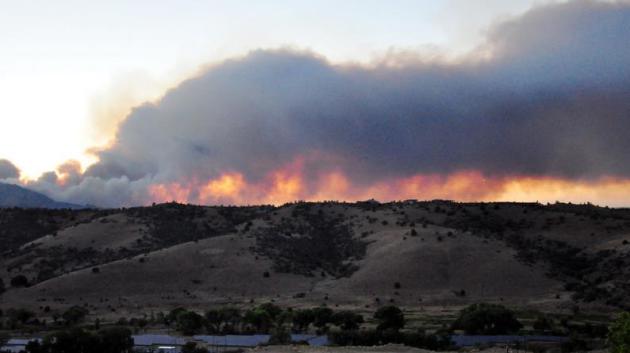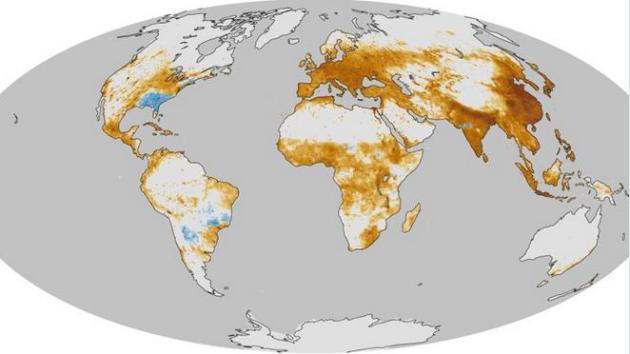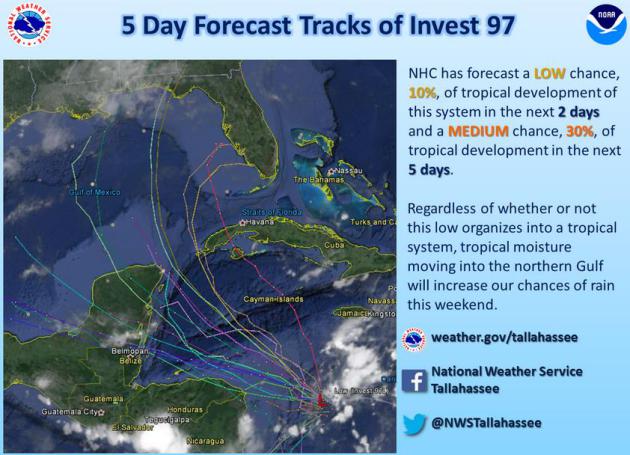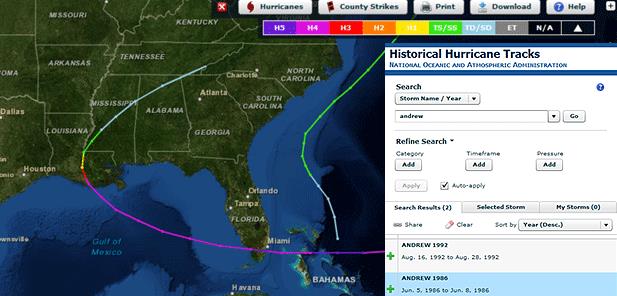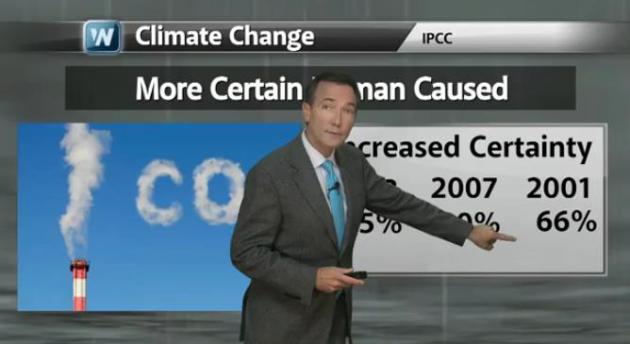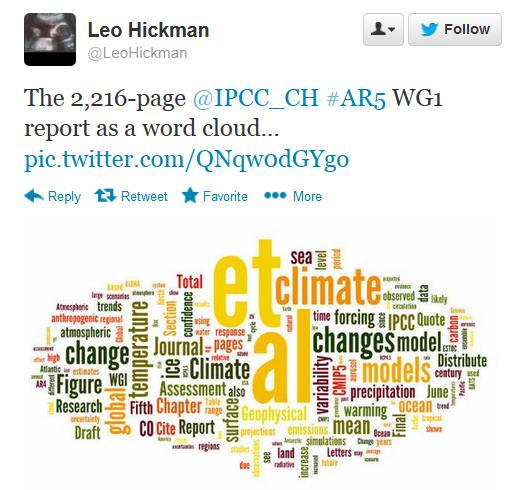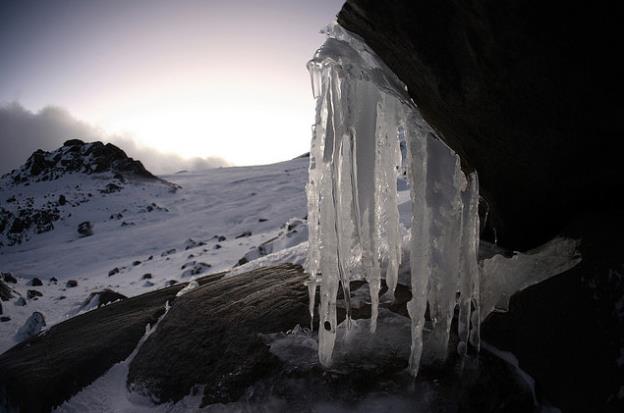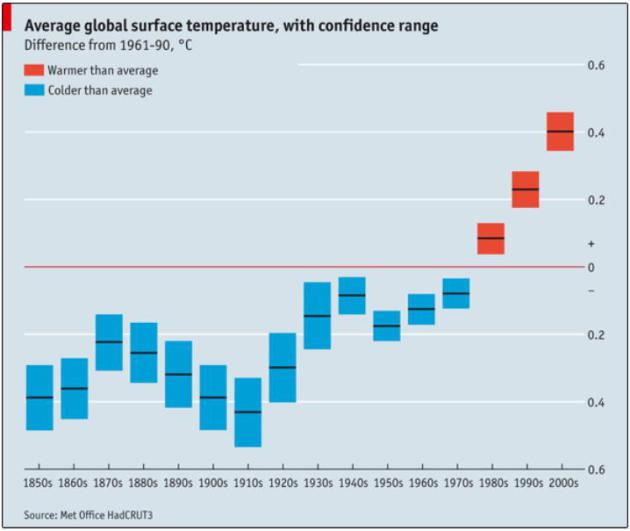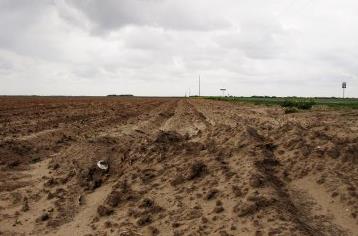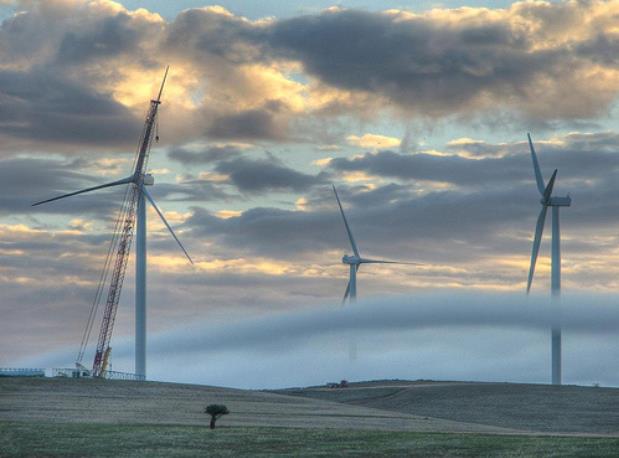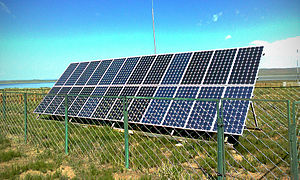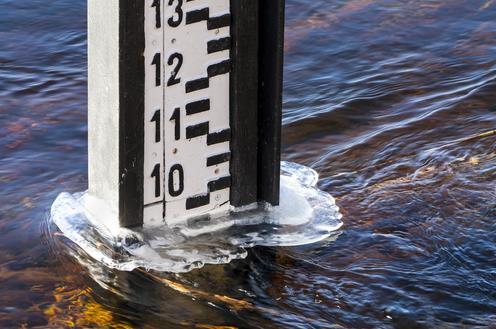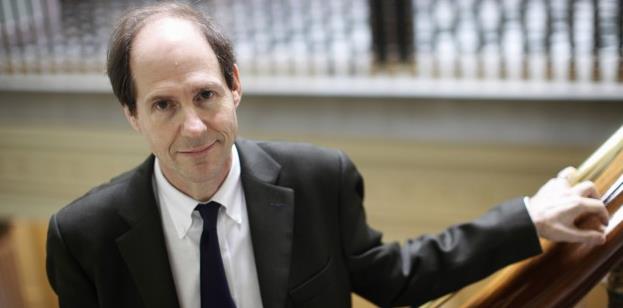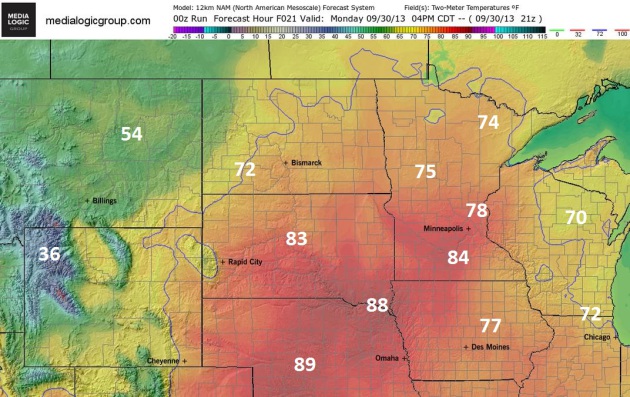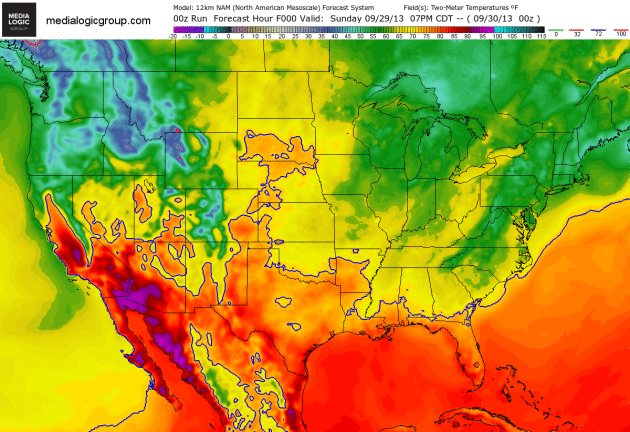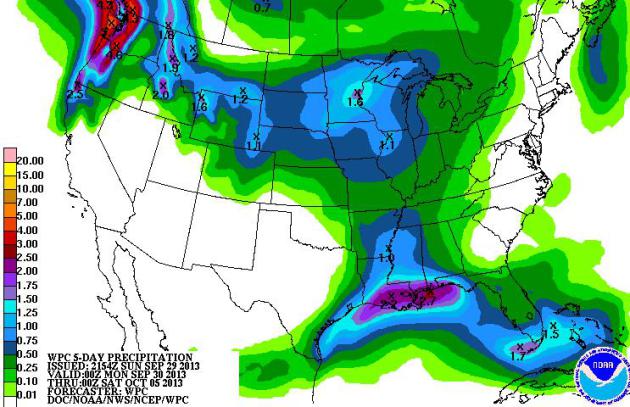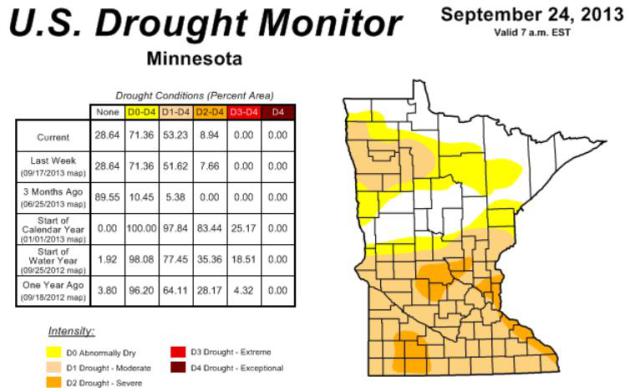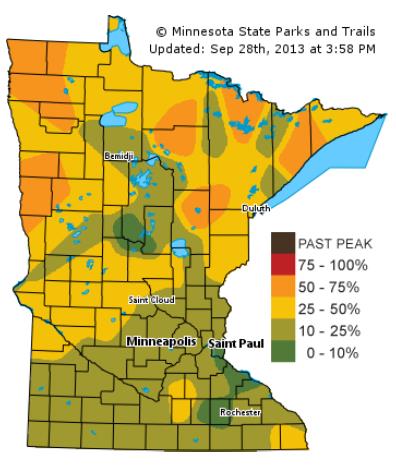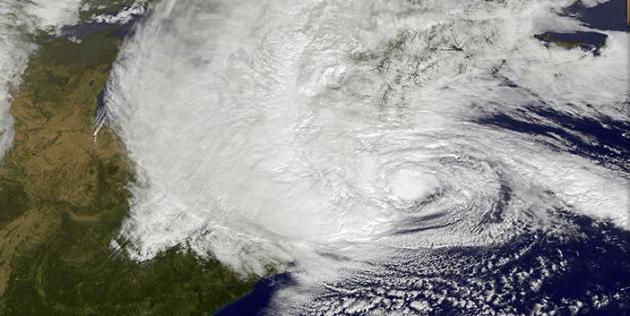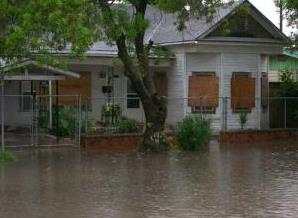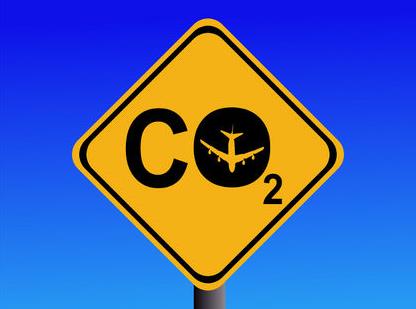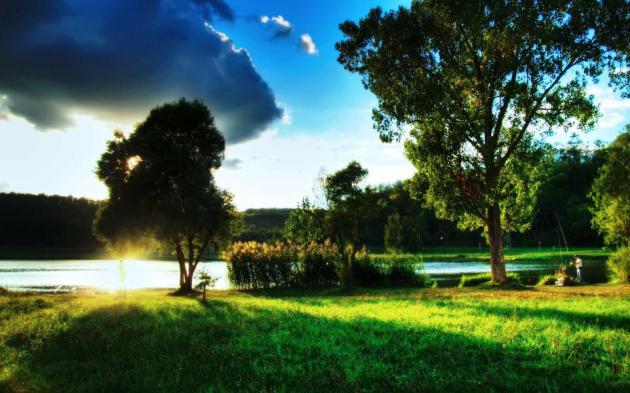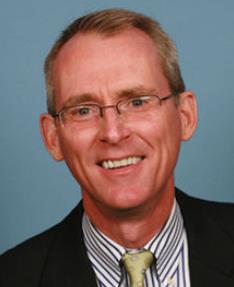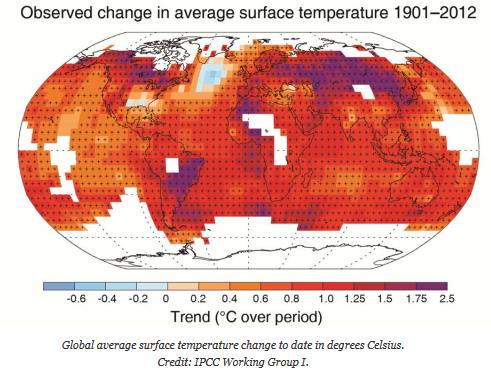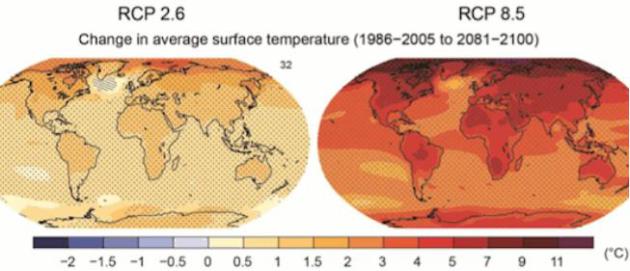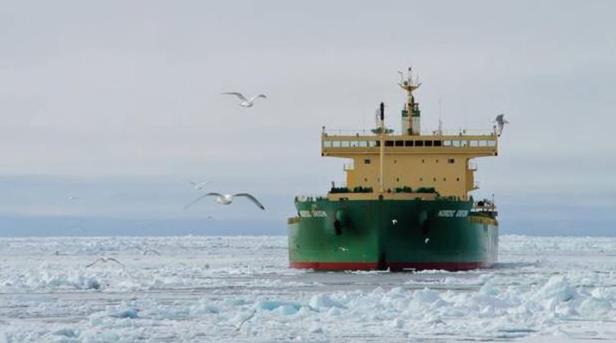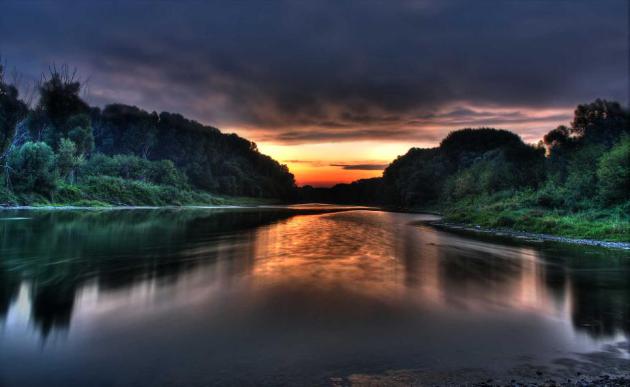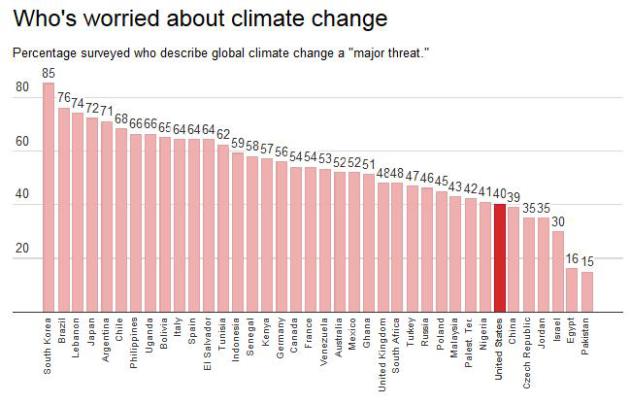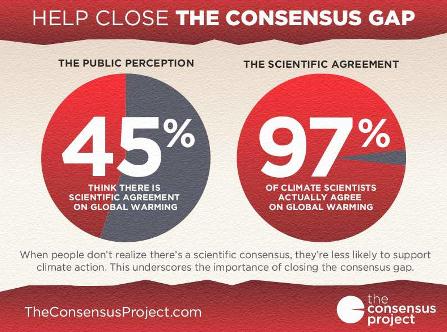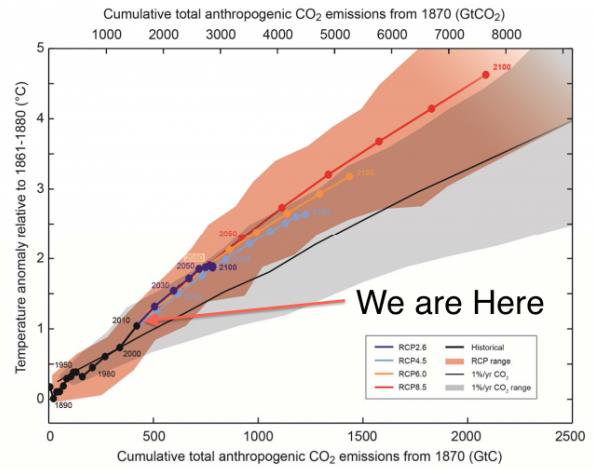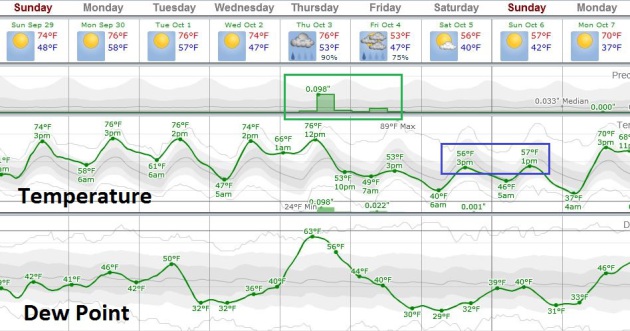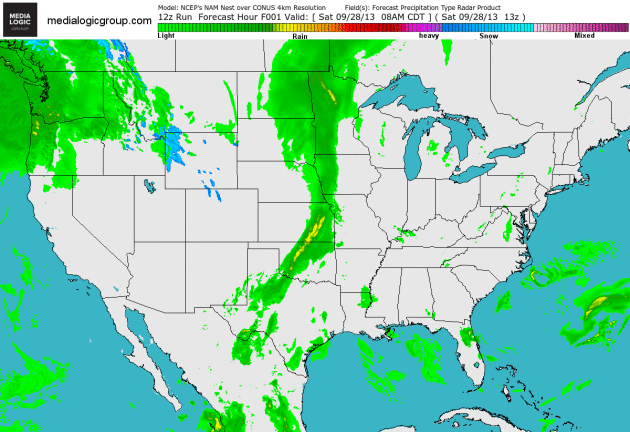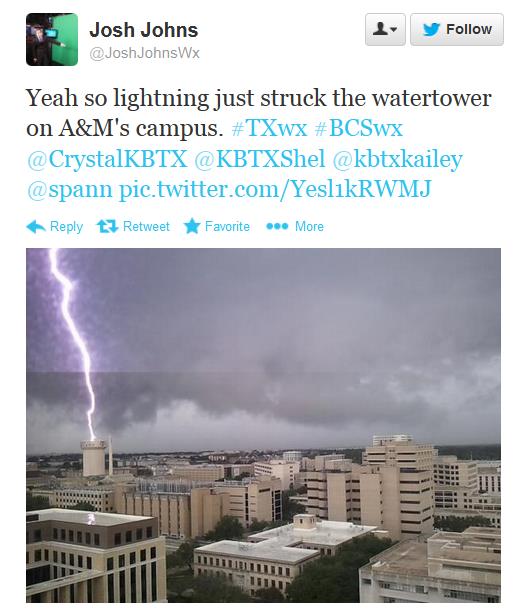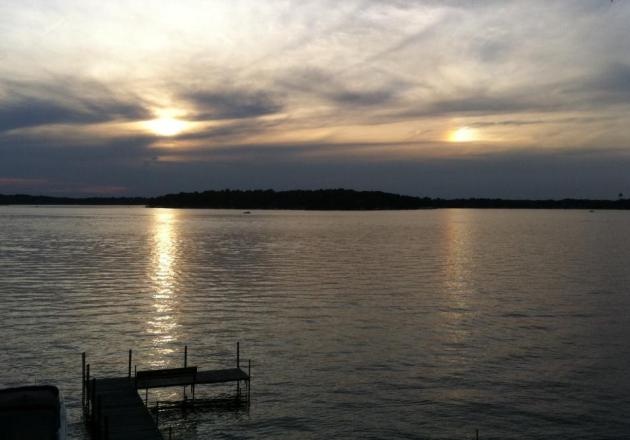What You Need To Know About IPCC AR5. Highlights from the latest climate report below.
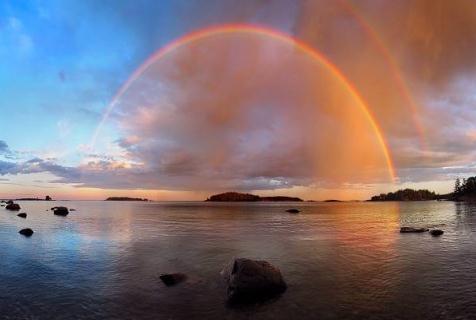 Over The Horizon
Over The Horizon
I wasn't born here but I've come to appreciate this place, and hope it can stay this way for my kids, and yours.
That's why I talk about climate change. It's already impacting America's weather patterns, and greater impacts may be coming.
My
intention isn't to alarm you or depress you but prompt you to go online
and see the real scientific findings, free of ideological spin or
snark.
I'm in Indianapolis talking to legislators & local
media about extreme weather trends; how these are symptoms of a warming
atmosphere. Friday, for the 5th time in 23 years, the world's leading
researchers confirmed that we are altering Earth's climate.
The
same day came news of a Danish ship becoming the second cargo ship to
traverse the Northwest Passage, passing NORTH of Canada, a result of
shrinking Arctic ice. It carried 15,000 tons of coal.
No, you can't make this stuff up.
Blue
sky returns today, another week of mostly 70s as we sail into October.
T-storms pop up on Thursday, by Friday a few flakes may be flying up
north with highs in the 40s from Duluth to Brainerd. Dig out the jackets
- there's a risk of a suburban frost by Monday AM.
We're still easing into autumn - models show more 70s by late next week.
Mild Start - Chilly Finish.
We should see 70s into Thursday, even a shot at 80F on Tuesday, the
first day of October. A vigorous cool frontal boundary whips up showers
and T-storms Thursday, with wind-whipped showers and sprinklles spilling
over into Friday, when it should truly feel like October. A brisk
weekend is shaping up, but we warm up again next week, based on ECMWF
guidance. Graph: Weatherspark.
National Map.
Saturday's soggy front pushes across the Midwest and Great Lakes today;
skies clearing over Minnesota and the Dakotas. Snow conntinues over the
highest terrain from Wyoming to Montana, while a stubborn Pacific storm
pushes windswept rain into the Pacific Northwest (some flash flooding
possible near Seattle and Portland). The tropics remain quiet. 84 hour
NAM model courtesy of NOAA and Ham Weather.
Winter Chill: More Bark Than Bite.
Next weekend looks chilly with highs in the 50s, but we should see more
60s and 70s returning to Minnesota next week. I still see a mild bias
(and little rain) into mid-October, based on GFS guidance.
Ripening Colors.
This upcoming weekend may be a good time to check out colors in the
Brainerd and Alexandria Lakes area; 50-75% of the leaves have turned
from near Detroit Lakes and Moorhead to the North Shore. Map above:
Minnesota DNR.
October: A Favorite Month For Many.
I always enjoy Dr. Mark Seeley's take on weather, climate and trends;
here's an excerpt of a colorful, expertly-crafted description of October
in this week's
WeatherTalk Newsletter: "
I
came across this commentary about October's weather in an 1895 edition
of the Minneapolis Journal...."October is generally a kingly month in
Minnesota. It opens with the usual affluence of sunshine and quickening,
bracing air, which [is} stimulating to the senses. Day after day, the
transformation of summer greenery into the royal and gorgeous tones of
autumn will go on and summer's silent fingering will be overwoven with
pageantry of color which no human art can call into being. The
recessional of the year is grander than the processional...."
Hurricane Season 2013.
Are we out of the woods when it comes to Atlantic, Caribbean or Gulf of
Mexico hurricanes? Not yet, according to an article at
Crusing World - here's an excerpt: "
Given
the contrast between prognostication and reality, we’re out of harm’s
way, right? Absolutely not, says Isaac Ginis, professor at the
University of Rhode Island Graduate School of Oceanography. “Regarding
the slow hurricane season so far, it’s not very unusual,” Ginis says.
“We had hurricane seasons in the past that started late. The main factor
this year is a stable atmosphere over the tropical Atlantic Ocean where
hurricanes form. Also, dry, dusty air moving off the coast of Africa
caused conditions hostile to tropical cyclone development. From the
hurricane climatology perspectives, storms ordinary form closer to the
U.S. coast later in the season, like Hurricane Sandy last year...”
Image credit: NOAA and
hurricanescience.org.
Researchers: Texas Not Ready For Next Hurricane. Here's a clip from a story at
The Brownsville Herald: "
Five
years after Hurricane Ike slammed into the Texas Gulf Coast, causing
more than $30 billion in damage and killing at least 37 Texans, cities
across the region have trumpeted their rebuilding efforts.
But the tune was very different at Rice University’s Severe Storm
Prediction, Education and Evacuation from Disasters Center this week,
where experts gathered to discuss the area’s vulnerability to future
storms. It hasn’t improved, they said, and may have even worsened in the
last few years — partly the result of explosive growth in the Houston
Ship Channel that experts fear is occurring without appropriate
hurricane safeguards..."
Photo credit above: Diana Eva Maldonado, The Brownsville Herald. "
A
home on Van Buren Street in Brownsville remains boarded up from
Hurricane Dolly, but today's rain has already flooded the street."
A Little Close For Comfort. Here's a remarkable photo taken by Josh Johns, courtesy of
Twitter.
How Far Is 3 Million Miles? By car it's a lot of of "are we there yets?" Talk about the ultimate endorsement for Volvo -
Gizmag has the details: "
What's
the relevance of 3 million miles? It's the record-breaking distance Irv
Gordon has driven in his 1966 Volvo 1800S, though not all at once,
obviously. Gordon reached the incredible milestone after years of
touring the United States, ever since he bought the car on a Friday in
1966. He made a flying start that holiday weekend, returning to the
dealership on the Monday for the car's 1,500-mile service. He crossed
both the 1 and 2 million mile marks in New York, but to crack 3 million,
his Volvo was transported to Alaska, one of the final two states where
Gordon was yet to drive it..."
Photo credit above: "
Irv Gordon has traveled 3 million miles in his 1966 Volvo 1800S."
Climate Stories.
The 5 Most Sobering Reports From The IPCC Climate Report. Climate Central's Andrew Freedman does a good job
highlighting the information you need to know from AR5; here's a clip: "
The first installment in the U.N. Intergovernmental Panel on Climate Change’s latest scientific assessment
on climate science came out on Friday, and it’s loaded with dense
terminology, expressions of uncertainty, and nearly impenetrable
graphics. But we'll make it simple for you. Here’s what you need to
know, in number and chart form..."
*
The IPCC AR5 Report Summary is
here, courtesy of The New York Times.
*
IPCC Climate Report: The Digested Read. Here's an overview at
The Guardian.
Alarming IPCC Prognosis: 9F. Warming For U.S., Faster Sea Rise, More Extreme Weather, Permafrost Collapse. Joe Romm at
Think Progress
has more details on the latest report, and how it differs from previous
IPCC summaries. But this is the 5th time in 23 years that the world's
leading climate scientists are pretty much saying the same thing: "
The
UN Intergovernmental Panel on Climate Change (IPCC) now says we are as
certain that humans are dramatically changing the planet’s climate as we
are that smoking causes cancer. So perhaps the best way to think about
the IPCC, which has issued a summary
of its latest report reviewing the state of climate science, is as a
super-cautious team of brilliant diagnosticians and specialists (who,
like many doctors, aren’t the greatest communicators). They are the best
in the world at what they do — the climate equivalent of the Cleveland
Clinic or Mayo Clinic or Johns Hopkins — where you and the rest of
humanity have just gone through a complete set of medical tests and are
awaiting the diagnosis, prognosis, and recommended course of treatment.
(It has a big waiting room — called planet Earth.) The diagnosis is that
humans are suffering from a fever (and related symptoms) caused by our
own actions — primarily emissions of carbon pollution. Indeed, team IPCC
is more certain than the last time we came in 6 years ago and ignored
their advice. They are 95% to 100% certain we are responsible for most
of the added fever since 1950..."
Image credit above: "
Humanity's
choice (via IPCC): Aggressive climate action ASAP (left figure)
minimizes future warming. Continued inaction (right figure) results in
catastrophic levels of warming, 9°F over much of U.S."
Friday's Big Global Warming Report: 5 Takeaways. Here's a snippet from a good summary at
National Geographic: "...
Five takeaways from the new report:
1.
On the extreme weather front, the report concludes it is “very likely”
that cold days and nights have decreased, while warm days and nights
have increased, since 1950. More extreme precipitation has also
likely increased worldwide, particularly in North America and Europe.
That means that the top one percent of heaviest rain or snow storms are
heavier now, as compared to then. In other words, when it rains hardest,
it pours harder.
2. The
oceans have warmed with “virtual certainty,” the report concludes, at a
rate of about 0.2 degrees Fahrenheit (0.11 Celsius) per decade since
1970 in the upper 246 feet (75 meters) of surface water. Ocean
warming accounts for more than 90 percent of the heat added to the
atmosphere by global warming in that time, with most of it pumped into
the top 2,300 feet (700 meters) of the oceans. “That doesn't mean the
oceans are saving us,” Stocker says. “It means it would be much worse
without the oceans...”
Photo credit above: "Extreme weather, like this unusually severe downpour in Chengdu, China, has likely increased." Photograph from China Daily, Reuters.
Danish-Owned Coal Cargo Ship Sails Through Northwest Passage.
No, the irony isn't lost on me either. The same science-denialists who
refute climate change must be thrilled that less Arctic ice enables
fossil fuel companies to transport their coal and oil
north of
Canada (and Russia), saving time and money - making it even more
cost-effective for the rest of us to use fossil fuels (that will
continue to shrink the Arctic ice cap over time). Makes perfect sense to
me. Here's an excerpt from Canada's
CTV News: "
A
Danish-owned coal-laden cargo ship has sailed through the Northwest
Passage for the first time and into the history books as the second bulk
carrier to navigate the Arctic route. The Nordic Orion left Vancouver
on Sept. 17 carrying 15,000 tons of coal. Ed Coll, CEO of Bulk Partners,
an operational partner of ship-owner Nordic Bulk Carriers, said Friday
that the freighter has passed Greenland. He said it is expected to dock
in Finland next week after traversing waters once impenetrable with
thick ice. Interest in the Northwest Passage is on the rise as climate
change is melting Arctic sea ice, creating open waterways. The melting
ice could make it a regular Atlantic-Pacific shipping lane..."
Image above:
National Post and Nordic Bulk Carriers.
Why The World Won't Listen.
Our grandkids are going to be pretty irritated with us - all the
science and data and we sat on our hands, debating the "facts",
listening to fossil-fuel-funded deniers babble on, hoping they might
just be right. Here's an excerpt from NewScientist and
Slate that explains how some of this perpetual denial is hard-wired into all of us: "...
How
did the rational arguments of science and economics fail to win the
day? There are many reasons, but an important one concerns human nature.
Through a growing body of psychological research, we know that scaring
or shaming people into sustainable behavior is likely to backfire. We
know that it is difficult to overcome the psychological distance between
the concept of climate change—not here, not now—and people's everyday
lives. We know that beliefs about the climate are influenced by extreme
and even daily weather. One of the most striking findings is that
concern about climate change is not only, or even mostly, a product of
how much people know about science. Increased knowledge tends to harden existing opinions..."
Cities Taking Action On Climate Change: Why Mayors Don't Waste Time Debating The Science. If only we had more scientifically rational pragmatists like New York City's Mayor Bloomberg.
LinkedIn has the story - here's an excerpt of Mayor Bloomberg's Op-Ed: "
Mayors
are pragmatists, not partisans; innovators, not ideologues. We are
responsible for delivering results rather than debating politics. As New
York’s great Mayor LaGuardia put it, “There is no Democratic or
Republican to pick up the garbage.” And as the world becomes
increasingly more urban, the importance of bold local action -
particularly on climate change – continues to grow. For the first time
in human history, more than half the world's population is living in
cities, which now produce approximately 70 percent of global greenhouse
gas emissions. That puts mayors and cities on the frontlines of the
battle against climate change. For coastal cities like New York, the
risks of climate change are especially serious: sea levels are expected
to rise by another two and a half feet in the next 40 years, making
storm surges even more powerful and dangerous. And intense storms are
likely to increase as the ocean's temperatures continue to rise..."
Scientists: Global Warming Is Man-Made, Getting Worse. More details from
Voice of America: "
Scientists
say they are more certain than ever that humans are the main cause of
global warming. The Intergovernmental Panel on Climate Change said
Friday it is "extremely likely" that global warming was man-made. In its
last report in 2007, the United Nations panel had said it was "very"
likely. U.S. Secretary of State John Kerry called the latest report
another "wake-up call." In a statement Friday, he said "those who deny
the science or choose excuses over action are playing with fire..."
Americans Are Less Worried About Climate Change Than Almost Anyone Else.
Well, Pakistanis are less worried than we are - that's a good start!
Check out the details of the graph above and sobering narrative from
The Washington Post.
7 Stupid Things People Are Saying About Climate Change That Aren't At All True. Cue the repeated head-slaps. After reading the latest IPCC report I needed a good laugh, and
Buzzfeed came through for me - thank God for those animated GIFs: “
Global
warming has stopped.” Nope. Global warming has accelerated, with more
overall global warming in the past 15 years than the prior 15 years. For
each of the last three decades the Earth’s surface has been
successively warmer than any preceding decade since 1850...."
Animated image credit:
media.giphy.com.
Thank You Global Warming. Giant Hornets Are Killing Dozens In China And Eating Bees Across Europe.
Well here's some good news! Don't sweat the thundershowers - hopefully
we won't be tracking these on Doppler in the USA anytime soon.
Quartz has the story - here's a clip: "
A plague of hornets, each the size of a human thumb, have descended on Shaanxi province this summer—at least 28 have been stung to death (link
in Chinese), while another 419 have been injured, according to a local
news report from China Radio Network (CRN), via the New York Times’ Chris Buckley. The death toll from hornet attacks in Ankang city is more than twice the annual average between
2002 and 2005, say the Ankang police, as the Guardian reports. A local
doctor said hospitalizations due to hornet attacks have risen steadily over the years (link in Chinese). Why
the uptick? The population of Asian giant hornets (vespa mandarinia),
as they’re known, has surged largely because of climate change, says the Shaanxi Provincial Forestry Department (link
in Chinese). The average winter temperature in Ankang rose 1.10 ℃ in
the span of a few years alone, allowing more hornets to survive the
winter. And it’s not just China; rising temperatures are behind the
spread of another deadly Chinese hornets species, vespa velutina, in
South Korea and Europe..."
Image credit above: "More killer than a killer bee." Flickr user Thomas H Brown.
Michael Mann: Climate Change Deniers Must Stop Distorting The Evidence. Details at
LiveScience: "...
The
lesson here, perhaps, is that no misrepresentation or smear is too
egregious for professional climate-change deniers. No doubt, we will
continue to see misdirection, cherry-picking, half truths and outright
falsehoods from them in the months ahead as the various IPCC working
groups report their conclusions. Don't be fooled by the smoke and
mirrors and the Rube Goldberg contraptions. The true take-home message
of the latest IPCC report is crystal clear: Climate change is real and
caused by humans, and it continues unabated. We will see far more
dangerous and potentially irreversible impacts in the decades ahead if
we do not choose to reduce global carbon emissions. There has never been
a greater urgency to act than there is now."
